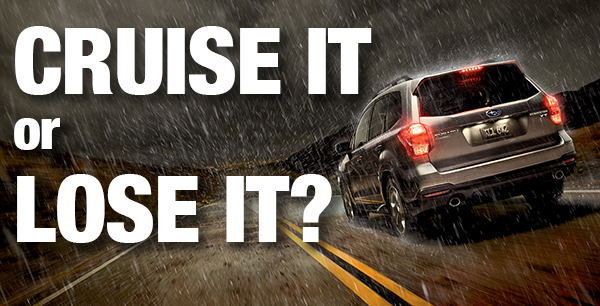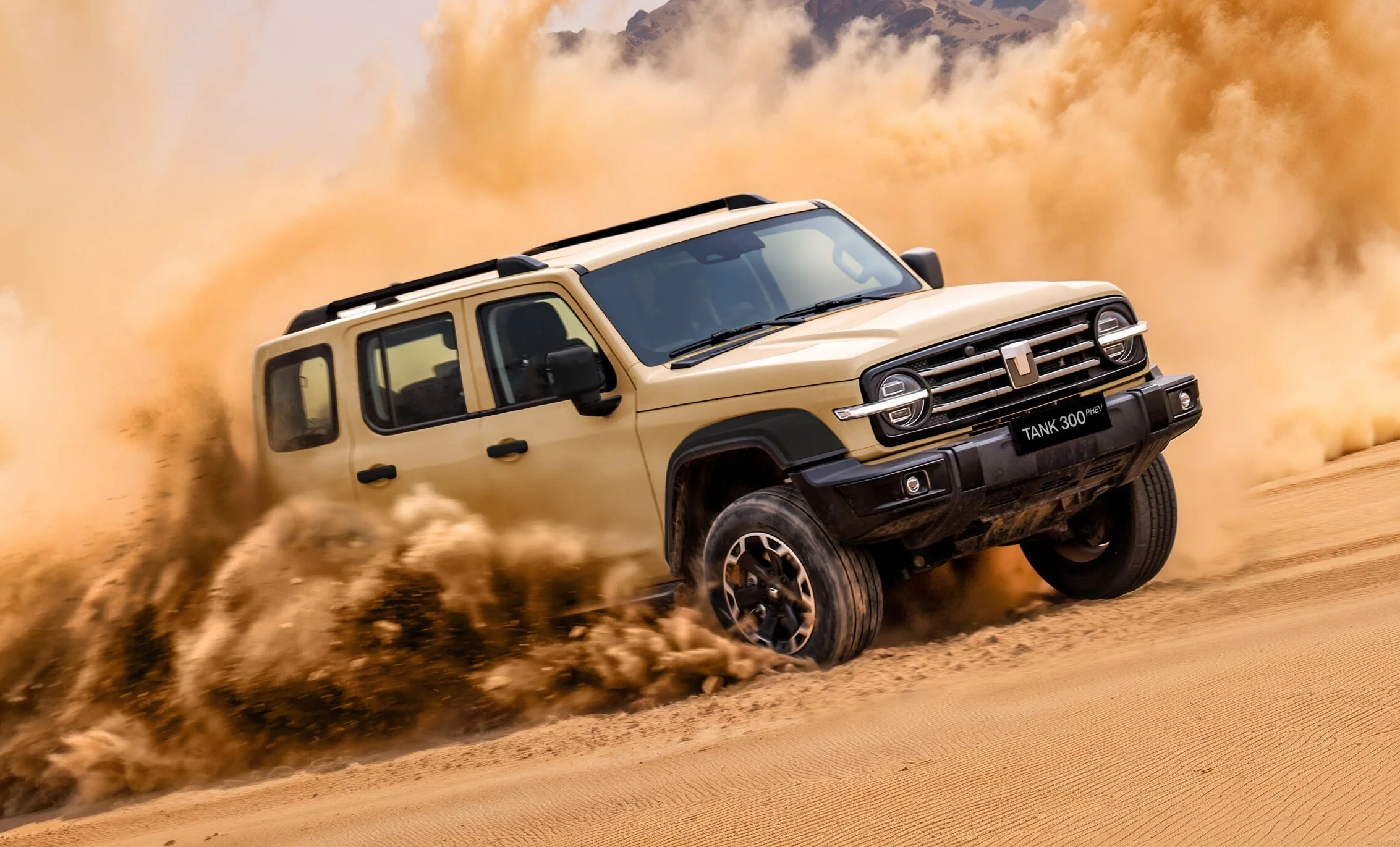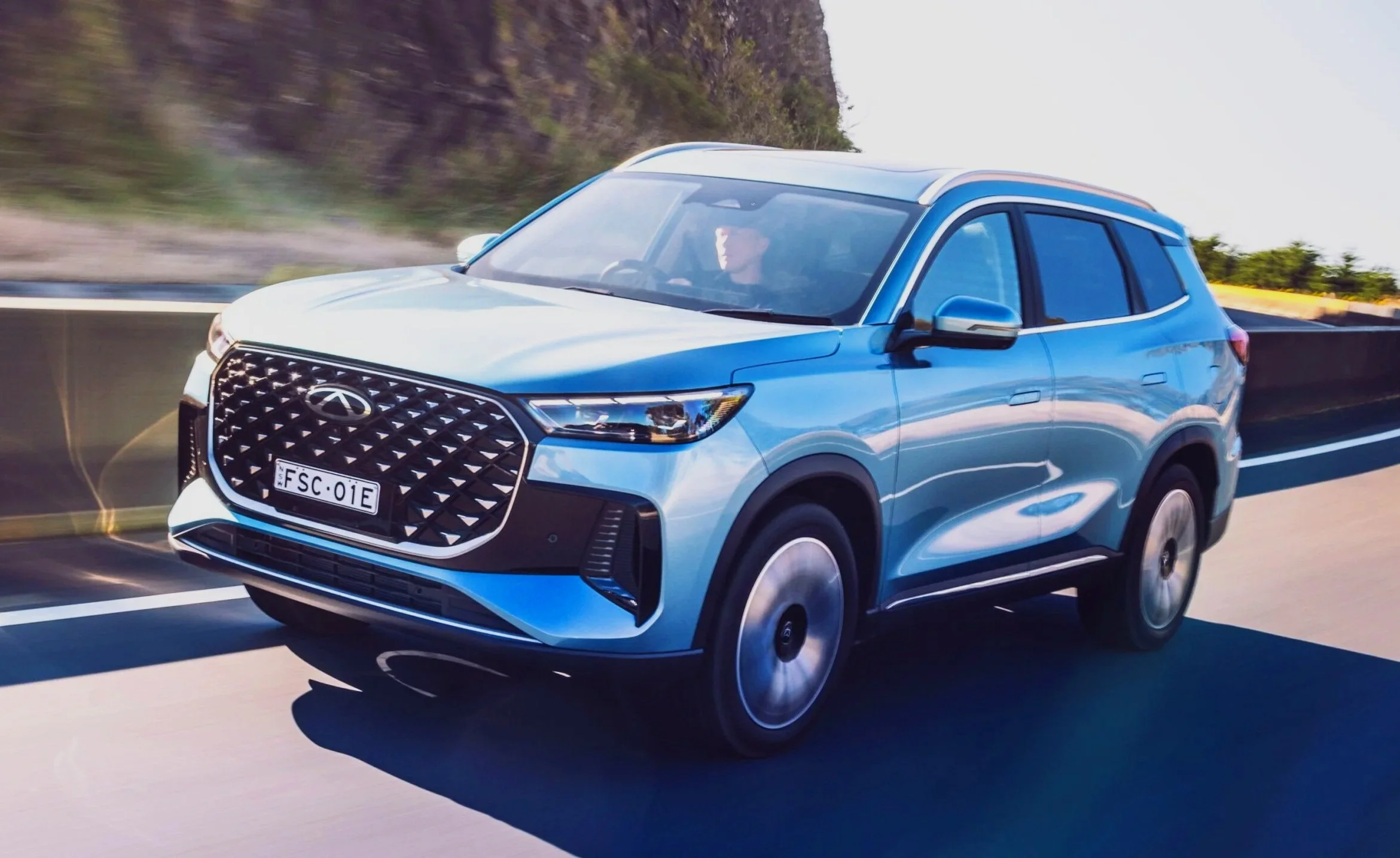The Truth About Using Cruise Control in Wet Weather
Using cruise control in the wet: Is this a good idea, or a good way to summon a demon from the pit of hell? I get this question a lot (even though it never rains in Australia)
People ask me this question all the time - as if using cruise control in the wet is the equivalent of opening up a wormhole in space-time and thus sucking an antimatter sun into existence. Which could be fun, briefly...
“I read that it is not advised to use cruise control on wet roads. Why this is the case? While I can see the obvious sense of maintaining absolute control in icy conditions, not using cruise control on, say, a wet but well-drained highway seems excessively cautious. Have I missed something?” - Richard
Executive summary: That advice that you read, Richard, is bullshit.
It is just as safe to use cruise control in the wet as it is in the dry.
We’ll address ‘why’ in just a second. But first - we have to talk about this access to so-called ‘information’.
Both a blessing and a curse.
A blessing because you can find anything out, quickly. Because the internet knows everything. But also a curse because plenty of the stuff the internet knows is bullshit.
WHAT YOU CAN 'LEARN' ONLINE
We’re all just a click away from ‘learning’ (if that’s the right word) that vaccines give kids autism.
Fluoride - that pesky neurotoxin that keeps the population dumb enough for the elites to rule, plus: it prevents tooth decay. How they faked the moon landing. How climate change is bullshit. How the holocaust never actually occurred. Et-frigging-cetera.
In the olden days, the facts were more or less agreed. We had differences of opinion about what to do about them. Example: Slavery. When Americans had slaves, some people (presumably those with the slaves) thought slavery was a good idea. Some other people thought it was a bad idea. But there was no real dispute on whether there was slavery, because salvery was a fact.
These days: Very different. The facts appear to be up for grabs. But only because of a collective societal reluctance to embrace objective reality, because some people find the truth inconvenient.
ONLINE CRUISE CONTROL 'ADVICE'
The internet is awash with bullshit allegations that using cruise control in the wet is like the trumpets and the four horsemen and the hail and fire mixed with blood and the second coming of Jesus (in Jackson Country Missouri - if you’re a Mormon dickhead). But nothing could be further from the truth.
I looked for outrageous claims on this. Chad Hemmat, an attorney from Colorado, helped me out.
"About the most dangerous thing you can do behind the wheel is using your cruise control during a rainstorm."
- Chad Hemmat, US Attorney, Colorado
Really? The most dangerous thing you can do behind the wheel? Compared with what? Driving on bald tyres? Being drunk? Sending a text message? Driving excessively fast? The web is full of this bullshit.
I’ve used cruise control in thousands of different new cars over 20 years, in the dry and in the rain - all without any problems. If you are using cruise in the wet and you crash - it might be convenient to blame the cruise control, but I’d suggest the blame is attributable somewhat closer to home.
WHAT CRUISE CONTROL DOES
Obviously, cruise control is a speed-maintaining system. It does not know if it’s raining; it just tries to maintain the set speed. There are limits on the actions it can take - for example, in an automatic it might drop out if excessive downshifting is required, and it seems to me that the system is programmed, generally only to allow moderate throttle inputs.
So - it’s a fairly benign system. And there’s nothing special about water. In the context of driving, water is just a lubricant. So it reduces the grip the tyres can exploit in the quest to deliver directional control.
AQUAPLANING
In extreme situations there can be so much water down there, that at some excessive speed, the tread loses the ability to pump it away, and the vehicle floats up. As if on skis, and control is lost. That’s called ‘aquaplaning’ or ‘hydroplaning’ - frankly it’s uncommon.
The key thing to remember about driving in the rain is that, because of the lower grip thresholds, you need to drive slower - using cruise control or not. And it’s up to you to set an appropriate speed. Even aquaplaning - that’s not an ‘excessive water’ phenomenon. It’s an ‘excessive speed’ phenomenon.
CRUISE CONTROL IN THE WET
If you barrel around a corner in the wet, and you encounter an increase in the gradient, and you’re also at the limit of adhesion, the cruise might send a signal to increase the throttle input to maintain the pre-set speed. And that throttle input might cause you to exceed the available grip at the driven wheels.
You might slide off the road - but more likely in a modern car, the traction control and stability control systems will intervene - most probably knocking cruise control out and doing other tech voodoo in real time to save you from yourself.
This type of incident really is not the cruise control’s fault. And it’s certainly not the rain’s fault. It’s your fault for driving too fast. People who crash always look for a convenient scapegoat - because taking responsibility: so confronting. So unpalatable. So at odds with the notion that you’re a friggin’ ace driver.
Should you fill your tyres with nitrogen? >>
DRIVER ACCOUNTABILITY
People actually say: ‘The car went out of control.’ When they crash. As if that explains it. It’s insane. That never happens. If cars just ‘went out of control’ spontaneously, every third day ending in ‘Y’ I think we’d have something of a regulatory problem.
This is exactly the same as when people say ‘the brakes locked up’ - also a fantasy. Brakes don’t do that.
Remember ‘malleable facts syndrome’? (Soapbox, earlier?) This is that. Cars don’t go out of control. Brakes don’t lock up. Cruise control does not make you crash. Drivers lose control because they make bad choices, and then they look for some plausible bullshit for a reputational spak filler.
So, in slippery conditions, around curves, the cruise control might apply enough throttle to cause traction loss. That’s not a cruise control problem; it’s a ‘you setting a speed that’s too high for the conditions’ problem.
If you are using cruise control during a tropical deluge, perhaps overtaking Noah in his B-double full of lumber and all of his helpers, none of whom have ever before built a boat, and you encounter a large puddle, and you lose it and aquaplane into a big line of animals in pairs - I think we’ll blame you for the extinction of all subsequent life on earth, not the cruise control.
TAKING CONTROL
Obviously in really inclement conditions it might be a good idea to take full manual control - but not because of a flaw in the cruise control operational engineering. Let’s not forget that cruise control is primarily for cruising on the highway. If you’re not cruising, don’t use it.
On a challenging twisty road with poor drainage in the pouring rain, I would not use cruise because I would want more control than that. But even if you are doing that with the cruise on - if there’s a problem, all you need to to to disengage it is kiss the brakes.
And we’re not talking ‘tongue down the throat’ in the manner of your auntie after one too many single malts on Christmas afternoon. Chaste lip service with no exchange of fluids whatsoever is all that is demanded, brake-wise.
CONCLUSION
There’s no justification for turning the cruise control off on a wet freeway because of some inherent danger, such as the early return of Christ to Missouri, discussed earlier, provided you take all other relevant safe driving precautions (such as set a safe speed, pay attention, be ready to brake if needs be, etc.)
Don't believe me? Here's what the NRMA says about cruise control in the wet >>














